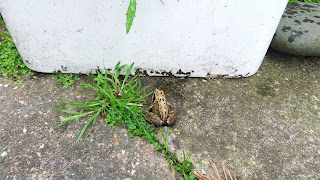Whatever we say about Christmas, from
a culinary perspective there’s certainly some serious fun to be had. Have you already planned your menu or is
someone else planning it for you? Either way I have a few wine thoughts to
tempt you with.
Say we start with a salmon mousse
type of arrangement or a mackerel paté. Served on blinis, of course, or on
oatcakes is rather fun. For those flavours, I’d suggest a Sauvignon Blanc from
the Eastern or Upper Loire in France. Pouillé Fumé and Sancerre are the famous examples but
there are others worth seeking out. Menetou Salon, Reuilly and Quincy are
neighbouring areas providing that same beautiful crisp acidity at slightly more
reasonable prices. Highly recommended. For those of you who think you probably
don’t like Sav. Blanc due to the intense gooseberry bombs from Marlborough in
New Zealand, don’t fret, this is a different experience, equally delicious with
the famous goats’ cheese from the area such as Selles-sur-Cher (that’s my
veggie tip). Yum yum yum.
Now let’s assume you’re having turkey. You may not be, of course. I had pheasant in recent Christmases, one as
as turkey is too big, two, I like pheasant and three, it’s cheap and roams
around a bit more in quaint, leafy England, before being shot. But you probably
are having turkey and why not. Turkey is delicious. Now, will you have white or
red? You can have either really though red would probably be the experts’
choice. With a roast turkey christmas
dinner there are lots of flavours apart from the bird. Cranberry, stuffing,
sprouts, rich, salty roasties and so on. For white, I‘d suggest a big
chardonnay. Rich and oaky with good freshness and acidity too, in order to stand
up to all those flavours. A rare treat would be Limoux in southern France which
does fantastic examples, or South Africa does some delightful food-friendly
Chardonnay, notably from the Western Cape. Margaret River in Western Australia
also would be a good bet.
If you’re more inclined to red, as I
would be, California or New Zealand Pinot Noir could be a good place to start,
if you like the big new world flavours. Burgundy, my favoured location for the sensual
wonder that is Pinot Noir, may be dominated by the sharpness of the cranberry sauce,
whereas the New World Pinots have more weight and depth of fruit. New Zealand
can be procured for less money – still quite a lot though - but Californian
Pinots are worth investigating if you’re happy to plunder your overdraft.
Personally, I’d go for a European, something a bit more restrained. Maybe a
high quality Beaujolais – no, that’s not a contradiction in terms – such as a
Morgon or a Moulin-a-Vent or or a Côtes-du-Rhône named village such as Cairanne
or Séguret or even a Rioja Reserva. Or less obvious, how about a Zweigelt,
unique to Austria, medium-bodied with enough fruit, spice and acidity to match
the turkey and trimmings.
Some other reds worth discovering this Christmas and after, would
include Saperavi. Saperavi is from Georgia. Yes, Georgia, on the Black Sea near
Russia, that’s right. Caviar comes from there. I don’t know much more about Georgia but discovering this wonderful wine
makes me want to. Too much for turkey – big and rich with strong tannins - it would be a great match for beef or venison.
Or how about Aglianico from south-west Italy. A similarly powerful red, with
added minerality from the volcanic soils, it’s wonderful with dark meats or
strong cheeses. Wine is about discovery. Voyages of discovery to places that
you don’t need to spend a fortune visiting. Just spend twenty quid, drink a
glass and imagine these beautiful lands where grapes have been grown for
thousands of years.
As for dessert, there would have to be some kind of chocolate involved,
as far as I’m concerned. Pedro Ximenez from south-west Spain is a dark, sweet sherry,
reminiscent of chocolate raisins. It’s recommended poured over ice cream though
ice cream is not particularly Christmassy.
If you want to save the waistline, just drink it - chilled - on its own. The
sherry that is, thanks to my editor for that one. The fascinating Icewine or
Eiswein is also a thing of miraculous qualities. Produced in Canada, Germany
and Austria, primarily, it has a unique genesis. When temperatures drop below a
certain level, around minus eight, I believe, the grapes are picked and crushed
frozen. The result is an acidity of astonishing intensity and very concentrated
sweetness. Less cloying than classic dessert wine like Sauternes it is, again,
a wine to be discovered, but it’s not easy to find and not cheap. Also,
unusually, it comes in red and white. Maybe start saving up for next Christmas
on that one...






























